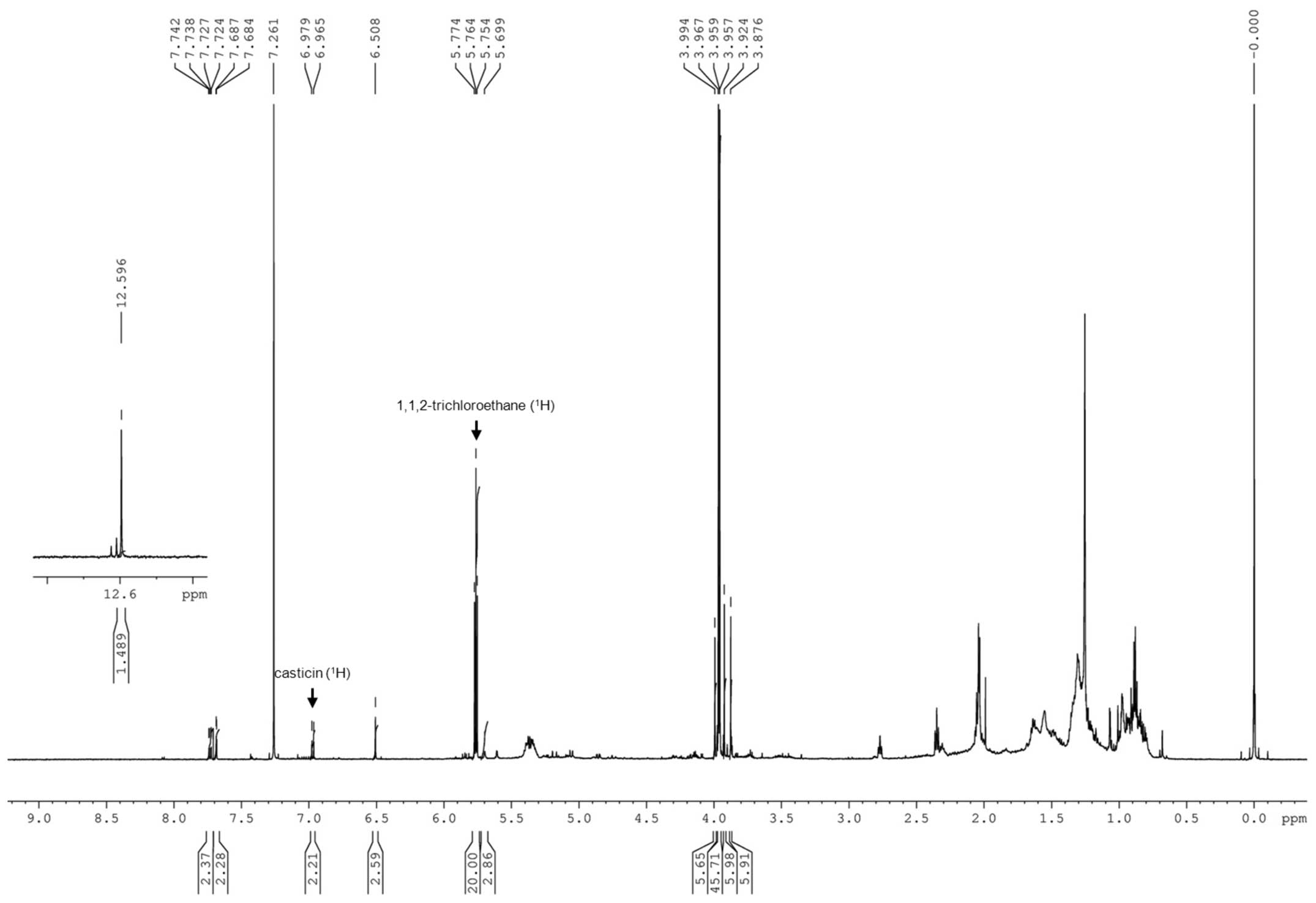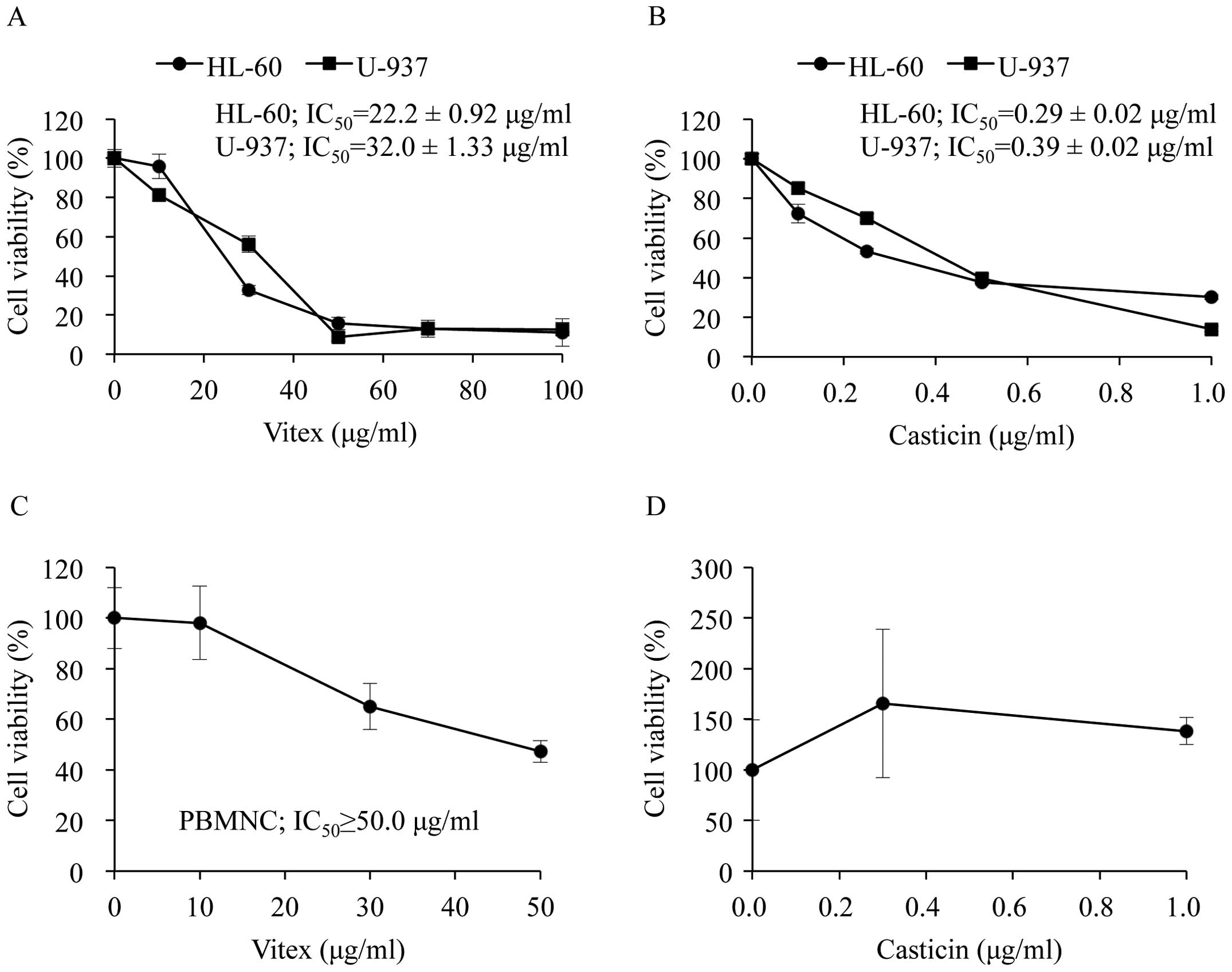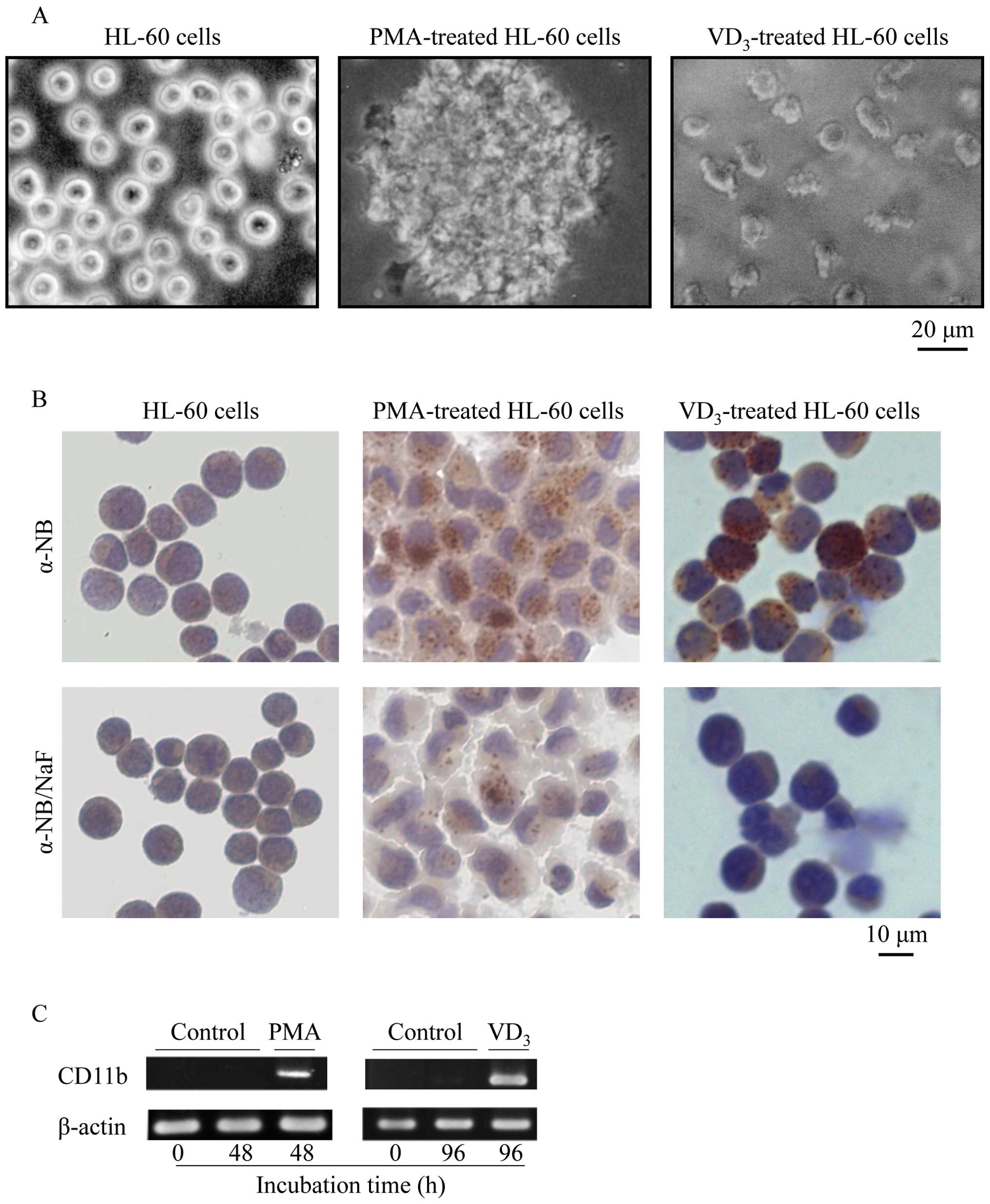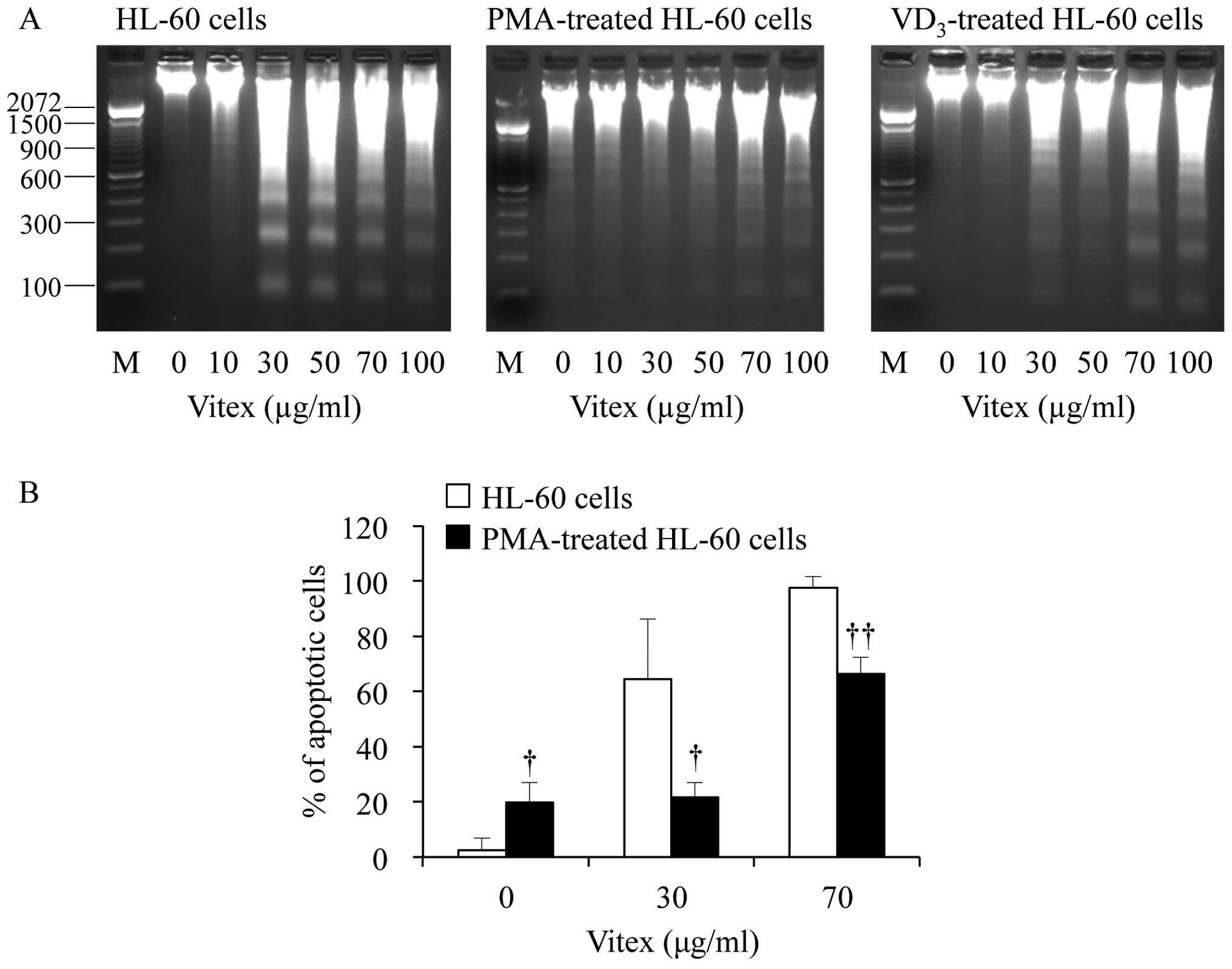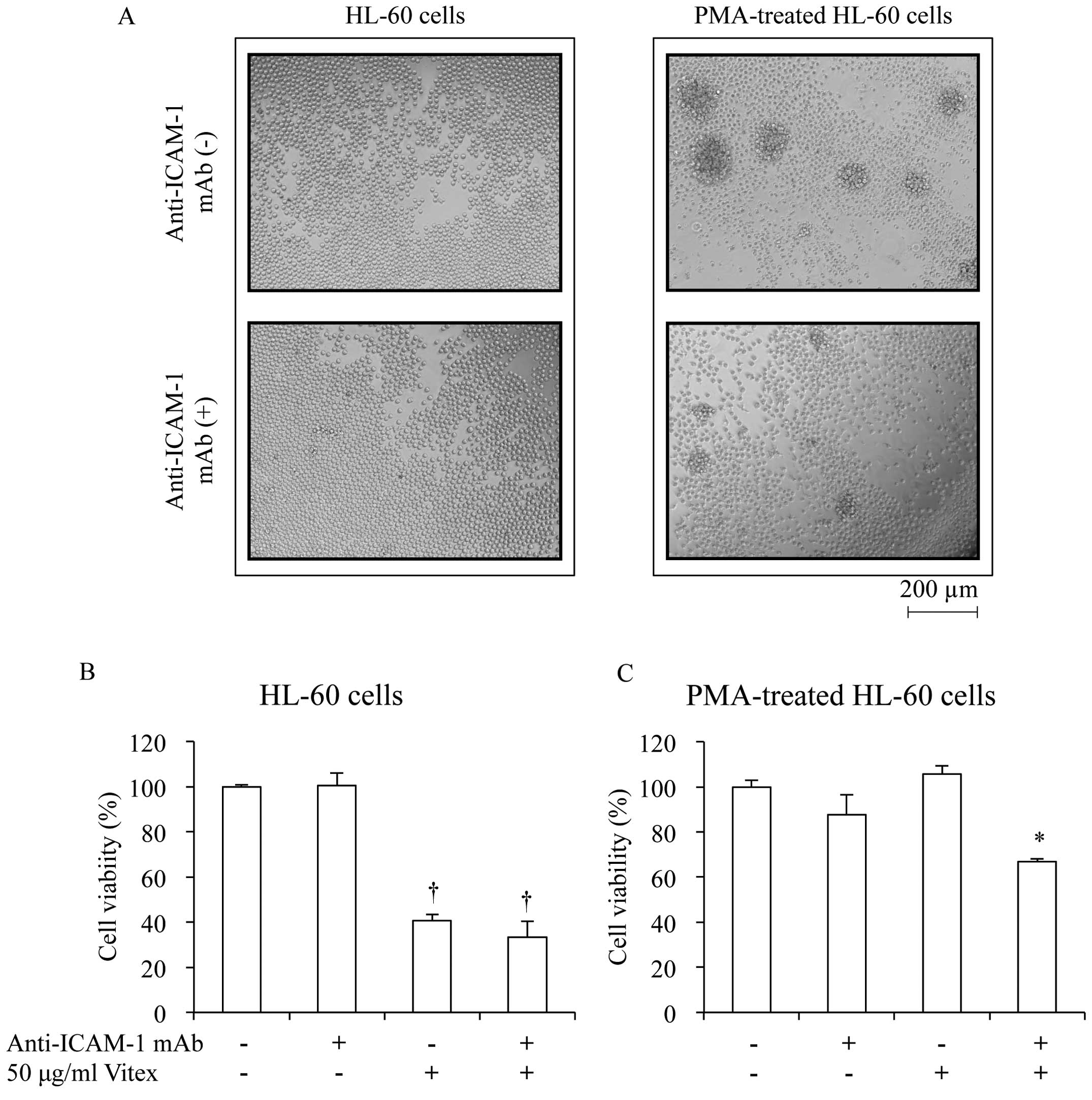|
1.
|
Fimognari C, Lenzi M and Hrelia P:
Chemoprevention of cancer by isothiocyanates and anthocyanins:
mechanisms of action and structure-activity relationship. Curr Med
Chem. 15:440–447. 2008. View Article : Google Scholar : PubMed/NCBI
|
|
2.
|
Yuan B, Imai M, Kikuchi H, Fukushima S,
Hazama S, Akaike T, Yoshino Y, Ohyama K, Hu X, Pei X and Toyoda H:
Cytocidal effects of polyphenolic compounds, alone or in
combination with, anticancer drugs against cancer cells: potential
future application of the combinatory therapy. Apoptosis and
Medicine. Ntuli TM: InTech; Croatia: pp. 155–174. 2012
|
|
3.
|
Schellenberg R: Treatment for the
premenstrual syndrome with agnus castus fruit extract: prospective,
randomised, placebo controlled study. BMJ. 322:134–137. 2001.
View Article : Google Scholar : PubMed/NCBI
|
|
4.
|
Ma L, Lin S, Chen R, et al: Treatment of
moderate to severe premenstrual syndrome with Vitex agnus castus
(BNO 1095) in Chinese women. Gynecol Endocrinol. 26:612–616. 2010.
View Article : Google Scholar : PubMed/NCBI
|
|
5.
|
Ohyama K, Akaike T, Hirobe C, et al:
Cytotoxicity and apoptotic inducibility of Vitex
agnus-castus fruit extract in cultured human normal and cancer
cells and effect on growth. Biol Pharm Bull. 26:10–18.
2003.PubMed/NCBI
|
|
6.
|
Ohyama K, Akaike T, Imai M, et al: Human
gastric signet ring carcinoma (KATO-III) cell apoptosis induced by
Vitex agnuscastus fruit extract through intracellular
oxidative stress. Int J Biochem Cell Biol. 37:1496–1510. 2005.
View Article : Google Scholar : PubMed/NCBI
|
|
7.
|
Chen SN, Friesen JB, Webster D, et al:
Phytoconstituents from Vitex agnus-castus fruits.
Fitoterapia. 82:528–533. 2011.
|
|
8.
|
Shen JK, Du HP, Yang M, et al: Casticin
induces leukemic cell death through apoptosis and mitotic
catastrophe. Ann Hematol. 88:743–752. 2009. View Article : Google Scholar : PubMed/NCBI
|
|
9.
|
Lane SW, Scadden DT and Gilliland DG: The
leukemic stem cell niche: current concepts and therapeutic
opportunities. Blood. 114:1150–1157. 2009. View Article : Google Scholar
|
|
10.
|
Collins SJ: The HL-60 promyelocytic
leukemia cell line: proliferation, differentiation, and cellular
oncogene expression. Blood. 70:1233–1244. 1987.PubMed/NCBI
|
|
11.
|
Tanaka H, Abe E, Miyaura C, et al: 1
alpha, 25-dihydroxyvitamin D3 induces differentiation of human
promyelocytic leukemia cells (HL-60) into monocyte-macrophages, but
not into granulocytes. Biochem Biophys Res Commun. 117:86–92. 1983.
View Article : Google Scholar : PubMed/NCBI
|
|
12.
|
Rovera G, Santoli D and Damsky C: Human
promyelocytic leukemia cells in culture differentiate into
macrophage-like cells when treated with a phorbol diester. Proc
Natl Acad Sci USA. 76:2779–2783. 1979. View Article : Google Scholar : PubMed/NCBI
|
|
13.
|
Drexler HG and Minowada J: History and
classification of human leukemia-lymphoma cell lines. Leuk
Lymphoma. 31:305–316. 1998.PubMed/NCBI
|
|
14.
|
Solary E, Bertrand R, Kohn KW, et al:
Differential induction of apoptosis in undifferentiated and
differentiated HL-60 cells by DNA topoisomerase I and II
inhibitors. Blood. 81:1359–1368. 1993.PubMed/NCBI
|
|
15.
|
Vachon PH: Integrin signaling, cell
survival, and anoikis: distinctions, differences, and
differentiation. J Signal Transduct. 2011:7381372011. View Article : Google Scholar : PubMed/NCBI
|
|
16.
|
Katagiri K, Yokosawa H, Kinashi T, et al:
Ubiquitin-proteasome system is involved in induction of
LFA-1/ICAM-1-dependent adhesion of HL-60 cells. J Leukoc Biol.
65:778–785. 1999.PubMed/NCBI
|
|
17.
|
Lewin G, Maciuk A, Thoret S, et al:
Semisynthesis of natural flavones inhibiting tubulin
polymerization, from hesperidin. J Nat Prod. 73:702–706. 2010.
View Article : Google Scholar : PubMed/NCBI
|
|
18.
|
Fukushima H, Hirano T and Oka K:
Staphylococcus aureus-superantigen decreases FKBP51 mRNA
expression and cell-response to suppressive efficacy of a
glucocorticoid in human peripheral blood mononuclear cells:
possible implication of mitogen-activated protein kinase pathways.
Eur J Pharmacol. 570:222–228. 2007. View Article : Google Scholar
|
|
19.
|
Imai M, Kikuchi H, Denda T, et al:
Cytotoxic effects of flavonoids against a human colon cancer
derived cell line, COLO 201: a potential natural anti-cancer
substance. Cancer Lett. 276:74–80. 2009. View Article : Google Scholar : PubMed/NCBI
|
|
20.
|
Yuan B, Ohyama K, Bessho T, et al:
Contribution of inducible nitric oxide synthase and
cyclooxygenase-2 to apoptosis induction in smooth chorion
trophoblast cells of human fetal membrane tissues. Biochem Biophys
Res Commun. 341:822–827. 2006. View Article : Google Scholar
|
|
21.
|
Yourno J, Burkart P, Mastropaolo W, et al:
Monocyte nonspecific esterase. Enzymologic characterization of a
neutral serine esterase associated with myeloid cells. J Histochem
Cytochem. 34:727–733. 1986. View Article : Google Scholar
|
|
22.
|
Solary E, Bertrand R and Pommier Y:
Apoptosis of human leukemic HL-60 cells induced to differentiate by
phorbol ester treatment. Leukemia. 8:792–797. 1994.PubMed/NCBI
|
|
23.
|
Murao S, Gemmell MA, Callaham MF, et al:
Control of macrophage cell differentiation in human promyelocytic
HL-60 leukemia cells by 1,25-dihydroxyvitamin D3 and
phorbol-12-myristate-13-acetate. Cancer Res. 43:4989–4996.
1983.PubMed/NCBI
|
|
24.
|
Imai M, Yuan B, Kikuchi H, et al: Growth
inhibition of a human colon carcinoma cell, COLO 201, by a natural
product, Vitex agnus-castus fruits extract, in vivo and in
vitro. Adv Biol Chem. 2:20–28. 2012. View Article : Google Scholar
|
|
25.
|
Prieto J, Eklund A and Patarroyo M:
Regulated expression of integrins and other adhesion molecules
during differentiation of monocytes into macrophages. Cell Immunol.
156:191–211. 1994. View Article : Google Scholar : PubMed/NCBI
|
|
26.
|
Lee SM, Lee YJ, Kim YC, et al: Vascular
protective role of vitexicarpin isolated from Vitex
rotundifolia in human umbilical vein endothelial cells.
Inflammation. 35:584–593. 2012. View Article : Google Scholar : PubMed/NCBI
|
|
27.
|
Hazlehurst LA and Dalton WS: Mechanisms
associated with cell adhesion mediated drug resistance (CAM-DR) in
hematopoietic malignancies. Cancer Metastasis Rev. 20:43–50. 2001.
View Article : Google Scholar : PubMed/NCBI
|
|
28.
|
Li ZW and Dalton WS: Tumor
microenvironment and drug resistance in hematologic malignancies.
Blood Rev. 20:333–342. 2006. View Article : Google Scholar : PubMed/NCBI
|
|
29.
|
Imai M, Kikuchi H, Yuan B, et al: Enhanced
growth inhibitory effect of 5-fluorouracil in combination with
Vitex agnus-castus fruits extract against a human colon
adenocarcinoma cell line, COLO 201. J Clin Clin Med. 6:14–19.
2011.
|
|
30.
|
Zhou Y, Liu YE, Cao J, et al: Vitexins,
nature-derived lignan compounds, induce apoptosis and suppress
tumor growth. Clin Cancer Res. 15:5161–5169. 2009. View Article : Google Scholar : PubMed/NCBI
|















